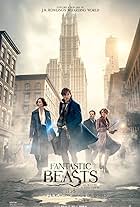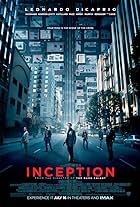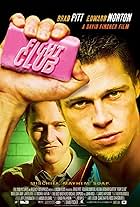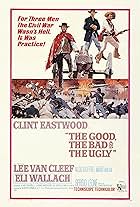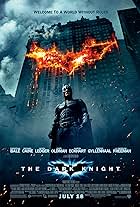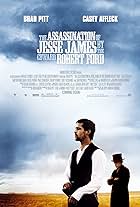Welcome to the new profile
We're still working on updating some profile features. To see the badges, ratings breakdowns, and polls for this profile, please go to the previous version.
Ratings243
radioheadrcm's rating
Reviews11
radioheadrcm's rating
The Parking Lot Movie covers a group of intellectual social misfits that love the comfort of working in an environment that they can shape to their will, but hate dealing with the society that comes and goes through their business. Watching their interactions with the college surroundings is classic. On one side, you have parking lot employee with a PhD in anthropology, passionately working for minimum wage, and on the other is a drunk sorority girl driving a luxury SUV (assumed to be paid for by her parents), and she's trying to skip out on her four dollar parking fee. Although the entire film essentially takes place in a parking lot, it manages to create quite a bit of social commentary, and really works as a fun and thought provoking film.
I picture The Parking Lot Movie working as a brilliant double bill with The Social Network. If one shows how intelligent outcasts can outclass society by working hard and becoming a powerful billionaire in just six years, the other shows how other intelligent outcasts can be just as happy removing themselves from the equation entirely, shielding themselves in apathy, and outclassing society in an entirely different way. The difference is really just between a Type A and B personalities. As the parking lot owner says: "I really like to hire Type B personalities."
Overall, the content the film ends up being much more engaging than you'd expect. The parking lot itself almost seems like a last bastion of creativity and normalcy in an invading world of mindless consumption. The employees really make it out to be an amusing struggle, and you can't help but root for them. Personally, I can't remember ever feeling closer to a group of people on film, and I'm already recommending this to like-minded thinkers.
I picture The Parking Lot Movie working as a brilliant double bill with The Social Network. If one shows how intelligent outcasts can outclass society by working hard and becoming a powerful billionaire in just six years, the other shows how other intelligent outcasts can be just as happy removing themselves from the equation entirely, shielding themselves in apathy, and outclassing society in an entirely different way. The difference is really just between a Type A and B personalities. As the parking lot owner says: "I really like to hire Type B personalities."
Overall, the content the film ends up being much more engaging than you'd expect. The parking lot itself almost seems like a last bastion of creativity and normalcy in an invading world of mindless consumption. The employees really make it out to be an amusing struggle, and you can't help but root for them. Personally, I can't remember ever feeling closer to a group of people on film, and I'm already recommending this to like-minded thinkers.
Enter the Void is exactly the kind of polarizing film that cinema needs right now. Too many films these days play it safe, being concerned with keeping the audience comfortable, safe and happy. Enter Gaspar Noe, who clearly has no regard either for the well-being of either the audience or his actors. We have antagonistically long (but brilliant) takes, beginning in an apartment and ending in a bar, several blocks over. We are given characters and are exposed to their darkest moments, but are never given a real reason to care for them, or to perceive them as anything but wretched. We are also shown some sexually discomforting things that we never really wanted to see on the silver screen (if you've seen it you probably know what I'm talking about). Also, the film is almost completely in first-person viewpoint, so you're constantly feeling confined to what Oscar is looking at, which are mostly psychedelic images. In effect, the feel and tone of the story are immediately off-putting for the viewer, but since you've already bought a ticket, what can you do but follow it through?
This is definitely the kind of film that can be approached in the wrong way, both with the medium that you view it through, and with your state of mind. Enter the Void is meant to be a transportive film (i.e. you living directly in the viewpoint of another, and feeling how that person feels, and perhaps even thinking how that person thinks). To technically maximize the experience, the film should really be experienced on the big screen. I'd imagine an IMAX screen to be ideal.
I also think a film like Enter the Void really needs to be approached with a separate set of goals than that of a normal film. First of all, chuck any notions of entertainment, or even enjoyment, out the window. While you're at it, remove any notions of positivity that you can think of. The only reactions that Enter the Void will draw from you are negative ones. Personally, the only emotion I consistently felt was a slight nausea, tinted with the occasional horror, or perhaps a shameful arousal, as there is excessive sexual content that is all wretched in one way or another.
The film is shot with a certain frame of mind, and sticks to it with remarkable faith. It's in the point of view of a small group of friends who are confined to the drug and clubbing scenes in Tokyo. He then films them in the most abrasive ways possible, showering the viewer in infinite neon lights, and fish-eyed close-ups, and then Noe lets his frames linger on these unsightly images for uncomfortably long. Even with his tracking shots moving from one location to another, when the viewer is normally given a moments rest, he rapidly cuts across hallways, stairs, and streets, and never gives the viewer a free moment to settle down.
Despite the film's antagonistic feel, and despite the physical and psychological discomforts that the film drew from me, I still found Enter the Void to be a worthwhile and even inspirational experience. More to the point, Enter the Void may not be a friendly experience, but this exact kind of experimentation and determined expression are just what cinema needs in order to be taken seriously as an artistic medium, when so many other directors air on the side of caution and safety. It might be a difficult ride, but just watch it once and you'll carry it with you forever.
This is definitely the kind of film that can be approached in the wrong way, both with the medium that you view it through, and with your state of mind. Enter the Void is meant to be a transportive film (i.e. you living directly in the viewpoint of another, and feeling how that person feels, and perhaps even thinking how that person thinks). To technically maximize the experience, the film should really be experienced on the big screen. I'd imagine an IMAX screen to be ideal.
I also think a film like Enter the Void really needs to be approached with a separate set of goals than that of a normal film. First of all, chuck any notions of entertainment, or even enjoyment, out the window. While you're at it, remove any notions of positivity that you can think of. The only reactions that Enter the Void will draw from you are negative ones. Personally, the only emotion I consistently felt was a slight nausea, tinted with the occasional horror, or perhaps a shameful arousal, as there is excessive sexual content that is all wretched in one way or another.
The film is shot with a certain frame of mind, and sticks to it with remarkable faith. It's in the point of view of a small group of friends who are confined to the drug and clubbing scenes in Tokyo. He then films them in the most abrasive ways possible, showering the viewer in infinite neon lights, and fish-eyed close-ups, and then Noe lets his frames linger on these unsightly images for uncomfortably long. Even with his tracking shots moving from one location to another, when the viewer is normally given a moments rest, he rapidly cuts across hallways, stairs, and streets, and never gives the viewer a free moment to settle down.
Despite the film's antagonistic feel, and despite the physical and psychological discomforts that the film drew from me, I still found Enter the Void to be a worthwhile and even inspirational experience. More to the point, Enter the Void may not be a friendly experience, but this exact kind of experimentation and determined expression are just what cinema needs in order to be taken seriously as an artistic medium, when so many other directors air on the side of caution and safety. It might be a difficult ride, but just watch it once and you'll carry it with you forever.
Mesrine: Killer Instinct shoots to cover more than a decade of the life of Jacques Mesrine, as he becomes a famous burglar, bank robber, kidnapper, and prison escapee (who later attempted breaking back into prison to fulfill a promise). If captured correctly, this should be fascinating material. But Richet, in the vein of the recent Public Enemies, really only gives us a series of rushed vignettes through Mesrine's life, and offers very little insight towards the titular character.
Throughout the film, we see repeated examples of Mesrine's strange, but strong moral code, and his romantic and passionate nature. Richet clearly wants us to empathize with Mesrine, but due to his pacing and his decisions of where to allocate time, he largely fails at making the character breathe. For example, in one scene he loses his wedding ring in a poker game. In the next shot, we see him get into a car and ponder the absence of the ring, and what it meant for him. The only problem is, the entire shot lasts less than seven seconds, including the time it took for him to get into the car. To further his redundancy, Richet next shows us the Paris skyline of the next morning, but instead of giving the audience a moment to gather what they just saw, he changes the shot three seconds later, and rushes us through the next scene. Richet attempts to make up for lost time towards the end, by spending more time in the prison sequences, but it's too late. By that point, the film is nearly over and he'd rushed through (and even skipped over) all of the dramatic tension that makes films worth watching.
Normally, a filmmaker would make such pacing decisions to achieve a sort of atmospheric or psychological effect, as seen in Requiem for a Dream, or Tetsuo, the Iron Man. Richet's motivation only seems to be a lack of time, and perhaps effort. On the positive side, the performances are pretty solid all around, and if you get bored during any segment, don't fret it, it'll be over soon.
Throughout the film, we see repeated examples of Mesrine's strange, but strong moral code, and his romantic and passionate nature. Richet clearly wants us to empathize with Mesrine, but due to his pacing and his decisions of where to allocate time, he largely fails at making the character breathe. For example, in one scene he loses his wedding ring in a poker game. In the next shot, we see him get into a car and ponder the absence of the ring, and what it meant for him. The only problem is, the entire shot lasts less than seven seconds, including the time it took for him to get into the car. To further his redundancy, Richet next shows us the Paris skyline of the next morning, but instead of giving the audience a moment to gather what they just saw, he changes the shot three seconds later, and rushes us through the next scene. Richet attempts to make up for lost time towards the end, by spending more time in the prison sequences, but it's too late. By that point, the film is nearly over and he'd rushed through (and even skipped over) all of the dramatic tension that makes films worth watching.
Normally, a filmmaker would make such pacing decisions to achieve a sort of atmospheric or psychological effect, as seen in Requiem for a Dream, or Tetsuo, the Iron Man. Richet's motivation only seems to be a lack of time, and perhaps effort. On the positive side, the performances are pretty solid all around, and if you get bored during any segment, don't fret it, it'll be over soon.
